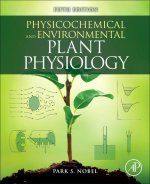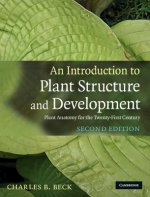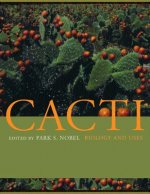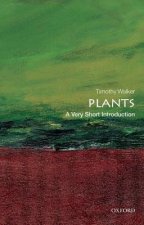
Kód: 25137324
Plant Responses to Nanomaterials
Autor Vijay Pratap Singh, Samiksha Singh, Sheo Mohan Prasad, Devendra Kumar Chauhan, Durgesh Kumar Tripathi
The population of the world continues to increase at an alarming rate. The trouble linked with overpopulation ranges from food and water scarcity to inadequacy of space for organisms. Overpopulation is also linked with several oth ... celý popis
- Jazyk:
 Angličtina
Angličtina - Vazba: Pevná
- Počet stran: 334
Nakladatelství: Springer Nature Switzerland AG, 2021
- Více informací o knize

4943 Kč

Skladem u dodavatele v malém množství
Odesíláme za 13-16 dnů
Potřebujete více kusů?Máte-li zájem o více kusů, prověřte, prosím, nejprve dostupnost titulu na naši zákaznické podpoře.
Přidat mezi přání
Darujte tuto knihu ještě dnes
- Objednejte knihu a zvolte Zaslat jako dárek.
- Obratem obdržíte darovací poukaz na knihu, který můžete ihned předat obdarovanému.
- Knihu zašleme na adresu obdarovaného, o nic se nestaráte.
Více informací o knize Plant Responses to Nanomaterials
Nákupem získáte 494 bodů
 Anotace knihy
Anotace knihy
The population of the world continues to increase at an alarming rate. The trouble linked with overpopulation ranges from food and water scarcity to inadequacy of space for organisms. Overpopulation is also linked with several other demographic hazards, for instance, population blooming will not only result in exhaustion of natural repositories, but it will also induce intense pressure on the world economy. Today nanotechnology is often discussed as a key discipline of research but it has positive and negative aspects. Also, due to industrialization and ever-increasing population, nano-pollution has been an emerging topic among scientists for investigation and debate. Nanotechnology measures any substance on a macromolecular scale, molecular scale, and even atomic scale. More importantly, nanotechnology deals with the manipulation and control of any matter at the dimension of a single nanometer. Nanotechnology and nanoparticles (NPs) play important roles in sustainable development and environmental challenges as well. NPs possess both harmful and beneficial effects on the environment and its harboring components, such as microbes, plants, and humans. There are many beneficial impacts exerted by nanoparticles, however, including their role in the management of waste water and soil treatment, cosmetics, food packaging, agriculture, biomedicines, pharmaceuticals, renewable energies, and environmental remedies. Conversely, NPs also show some toxic effects on microbes, plants, as well as human beings. It has been reported that use of nanotechnological products leads to the more accumulation of NPs in soil and aquatic ecosystems, which may be detrimental for living organisms. Further, toxic effects of NPs on microbes, invertebrates, and aquatic organisms including algae, has been measured. Scientists have also reported on the negative impact of NPs on plants by discussing the delivery of NPs in plants. Additionally, scientists have also showed that NPs interact with plant cells, which results in alterations in growth, biological function, gene expression, and development. Thus, there has been much investigated and reported on NPs and plant interactions in the last decade. This book discusses the most recent work on NPs and plant interaction, which should be useful for scientists working in nanotechnology across a wide variety of disciplines.
 Parametry knihy
Parametry knihy
Zařazení knihy Knihy v angličtině Mathematics & science Biology, life sciences Botany & plant sciences
4943 Kč
- Plný název: Plant Responses to Nanomaterials
- Podnázev: Recent Interventions, and Physiological and Biochemical Responses
- Autor: Vijay Pratap Singh, Samiksha Singh, Sheo Mohan Prasad, Devendra Kumar Chauhan, Durgesh Kumar Tripathi
- Jazyk:
 Angličtina
Angličtina - Vazba: Pevná
- Počet stran: 334
- EAN: 9783030367398
- ID: 25137324
- Nakladatelství: Springer Nature Switzerland AG
- Hmotnost: 688 g
- Rozměry: 23 × 155 × 24 mm
- Rok vydání: 2021
Oblíbené z jiného soudku
-

Plants from Test Tubes : An Introduction to Micropropagation
652 Kč -

Maria Sibylla Merian
546 Kč -

Finding the Mother Tree
337 Kč -

Tree Ferns
500 Kč -

Sexual Reproduction in Higher Plants
6032 Kč -

Teaming with Nutrients
484 Kč -

Plant Pathology
2250 Kč -

Plant Systematics
2540 Kč -

Succulent Flora of Southern Africa
581 Kč -

Native American Ethnobotany
1540 Kč -

Physicochemical and Environmental Plant Physiology
2650 Kč -

Plant Pathology and Plant Diseases
1606 Kč -

Raven Biology of Plants
2480 Kč -

Orchids of Tropical America
583 Kč -

Rare and Exotic Orchids
1273 Kč -

Applied Tree Biology
2341 Kč -

Hartmann & Kester's Plant Propagation: Principles and Practices
2212 Kč -

Introduction to Plant Structure and Development
2291 Kč -

Cacti
2277 Kč -

Illustrated Encyclopedia of Clematis
907 Kč -

Flora of North America
2781 Kč -

Conservation Methods for Terrestrial Orchids
1947 Kč -

Plants and Microclimate
1839 Kč -

Arctic Plants of Svalbard
1023 Kč -

Bogs & Fens - A Guide to the Peatland Plants of the Northeastern United States and Adjacent Canada
780 Kč -

Neem
6694 Kč -

In Praise of Plants
564 Kč -

From Plant Traits to Vegetation Structure
1947 Kč -

RSPB Nature Tracker's Handbook
436 Kč -

RHS Genealogy for Gardeners
508 Kč -

Comfortably Unaware
336 Kč -

Darwin's Most Wonderful Plants
232 Kč -

Metamorphosis of Plants
720 Kč -

Plant Behaviour and Intelligence
2058 Kč -

Plant Ecology
2272 Kč -

Brilliant Green
368 Kč -

Big, Bad Book of Botany
333 Kč -

Flowers of Greece and the Balkans
2398 Kč -

Animal, Vegetable, Miracle
347 Kč -

Plants: A Very Short Introduction
232 Kč -

Tropical Fruits and Other Edible Plants of the World
1194 Kč -

Flora of Madeira
3516 Kč -

Plant Biology
2408 Kč -

What a Plant Knows
447 Kč -

Atlas of Poetic Botany
573 Kč -

Handbook of the New Zealand Flora
1664 Kč -

Textbook of Pollen Analysis
1931 Kč -

Moss Flora of Britain and Ireland
4674 Kč -

Wild Garden
1143 Kč
Osobní odběr Praha, Brno a 12903 dalších
Copyright ©2008-24 nejlevnejsi-knihy.cz Všechna práva vyhrazenaSoukromíCookies


 Vrácení do měsíce
Vrácení do měsíce 571 999 099 (8-15.30h)
571 999 099 (8-15.30h)